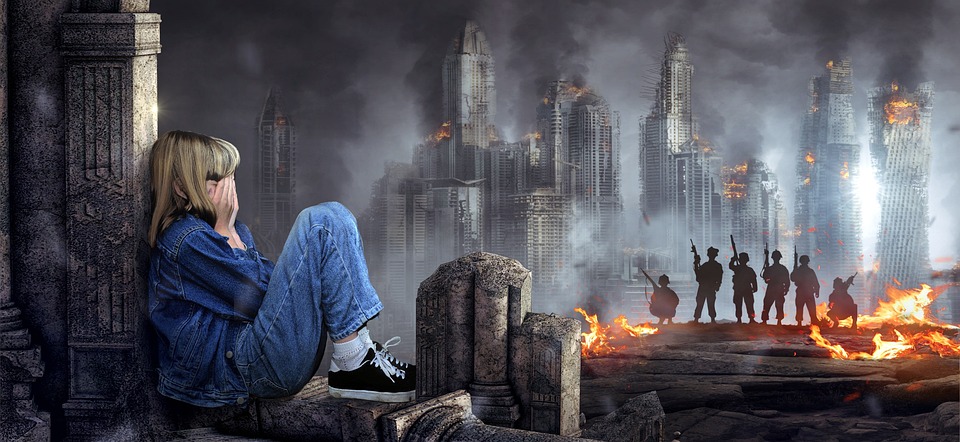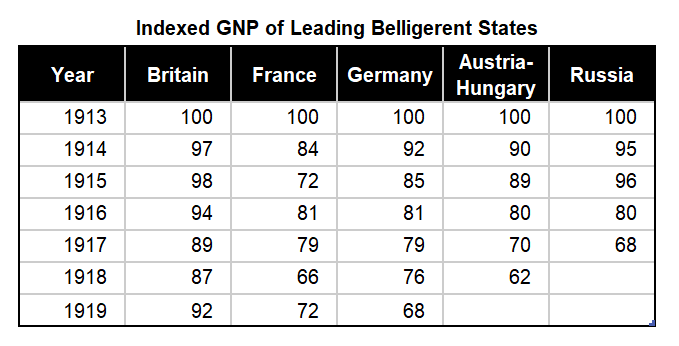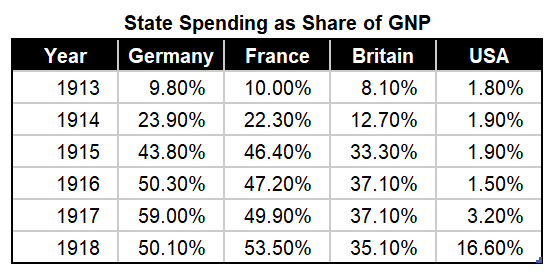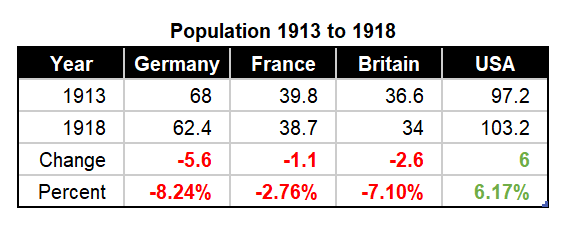Translating deep thinking into common sense
How the “Economics of War” Turn Goods into “Bads”

By Mark Tier
May 29, 2023
SUBSCRIBE TO SAVVY STREET (It's Free)
When the world is at peace, all countries are producing goods to trade with each other.
Trade makes everybody richer.
Trade makes everybody richer. For the simple reason that when you exchange goods or money with somebody else, you give up something you value for something else you value even more. Or you don’t make the trade.
To put it another way, the peacetime production of goods results in an increase in Gross National Product (GNP), thus increasing everybody’s wealth.

Trade is a win-win for all parties. Resulting in a dramatic increase in wealth. Until war turns everything upside down.
As you can see, trade is a win-win for all parties. Resulting in a dramatic increase in wealth.
Until war turns everything upside down.
When two countries—say Unistran and Jalorus—go to war, both economies are reorganised from production for trade to the production of weapons.
These weapons are used to shoot bullets, missiles, and drop bombs on the enemy. Goods that instead of being traded for goods of greater value Unitstan is, in effect, “giving away” to the enemy.
Goods, of course, that the enemy would rather not receive.
Similarly, Jalorus is returning the “favour”: in effect “trading” its munitions for Unistan’s.
In economic terms, both countries are supplying the other country with “free goods.”
Though surely a better terminology is “bads.”
Munitions are produced to destroy an enemy. But in the process of achieving that goal, those munitions are all destroyed.
Plus: weapons require the production of other assets for their delivery and protection: armoured cars, tanks, jet fighters and bombers, artillery, anti-aircraft guns, drones, and all the other paraphernalia the military needs to deliver its “free goods” to the enemy. While simultaneously protecting itself from the enemy’s largesse.
“Goods” that don’t produce wealth, but consume it.
Imagine if you were to apply the same rationale in your day-to-day activities. Instead of getting paid to go to work, you work for free. Or if you own a business, you give your products away to your customers. Or you produce “assets” that are of no use to anybody.
It won’t be long before you show up in a bankruptcy court.
When governments exhibit the same behaviour they (unfortunately) do not go bankrupt. As long as they can continue to print money or raise taxes.
By doing so, they are financing the transfer of production from tradable goods to “bads.”
At the same time they are removing workers who are producing wealth from the assembly lines, farms, shops, and other businesses big and small, and sending them to the war zone where many die or are permanently disabled, and can no longer be productive.
The net result, as this table of the effect of World War I on the GNP of the warring countries demonstrates, is a dramatic decline in everyone’s well-being:

The source of this decline in wealth becomes clear when you see the dramatic increase in warring governments’ spending as a percentage of GNP. Spending in order to deliver “bads” to the enemies:

Between 15 and 22 million people died. And another 23 million were wounded and/or disabled.[1]

These tables understate the total effects and consequences of World War I.
If World War I had never happened the world today would be a far happier and wealthier place.
The peace of 1918 did not bring to an end the effects of World War I.
Far from it. This war dramatically changed the world—for the worse. Resulting in hundreds of millions more deaths, and other even more disastrous consequences that still plague us to this day.
If World War I had never happened the world today would be a far happier and wealthier place.
To be continued in “The Earth-Shattering Consequences of World War I.”
[1] https://en.wikipedia.org/wiki/World_War_I_casualties








